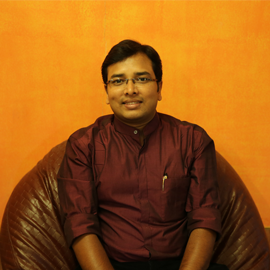Dear Mr Modi, only Indians who didn't fight for freedom are the RSS

A small part of Prime Minister Narendra Modi's Independence Day address has barely attracted any attention yet.
With the headlines focusing on Modi's aggressive mention of Balochistan, his articulation of those who were freedom fighters during the country's struggle for independence has been reduced to a hardly-noticed paragraph.
Perhaps that is good because it was essentially an attempt to propagate a lie. But, it deserves to be unveiled for exposing an attempt at propaganda from the highest level of the country's leadership.
"Every Indian was a soldier of the freedom movement," the PM declared from the ramparts of the Red Fort.
"Everybody wanted that the country should attain freedom," he continued and then went on to mention, very specifically, "It is possible that someone might not have been imprisoned, someone might not have been able to make sacrifice but even then, every Indian had a resolve for freedom."
Notice the pain the PM took in asserting that even if some people did not go to jail or make any sacrifice during the freedom movement, that doesn't mean they did not want a free India.
Who wanted freedom and who did not?
So, who are these Indians Modi could be talking about?
Many believe that Modi was referring to the earliest members of the Rashtriya Swayamsevak Sangh (RSS), the ideological fountainhead of Modi's Bharatiya Janata Party (BJP), who are widely known to have stayed away from the independence struggle.
A large number of historical accounts have shown that the RSS stayed away from the movement, refusing to participate in any form of resistance against the British rule.
RSS' founder, KB Hedgewar, is said to have carefully avoided associating the organisation with any political activity that could be seen as being anti-British.
The Sangh also harboured and propagated hatred against the tallest leader of the independence movement, MK Gandhi, essentially on the grounds that he had strived for Hindu-Muslim unity.
Hedgewar's successor and the framer of many of RSS' guiding principles, MS Golwalkar, continued the policy and is believed to have even lamented the opposition to British rule.
The RSS shunned the tri-color as the symbol of the Indian national movement and adopted its saffron flag as its guiding force. In fact, the RSS refused to fly the tri-colour at its offices across the country, till very recently when the have taken a strategic u-turn.
Also read: Don't be fooled by BJP's Tiranga Yatra, RSS hated the tricolour
It is because of these and many other accounts that historians have consistently held the view that the RSS was not a part of the Indian independence struggle and is now attempting to falsely associate with it.
Decoding the 'someone'
It is in this light that Modi's words can be seen in their real context. The "someone" who neither went to jail nor made any sacrifice during the freedom struggle stands for every RSS worker and leader.
According to political commentator John Dayal, Modi's words "wiped clean" history books "and presumably police and court records, of all taints of traitors, those who apologised, those who opposed the freedom struggle, and those who refused to participate in the world's largest people's movement led by the man they call the Mahatma."
Janata Dal (United)'s General Secretary KC Tyagi also echoed this view. "The prime minister was alluding to his political ancestors through these words. The Hindu Mahasabha had no role in the freedom movement and what the PM is saying is that such people wanted the freedom without having to suffer the consequences of struggling for it. Similarly, during Emergency, neither the PM nor any of his colleagues in the RSS-BJP went to jail for fighting against it."
CPI(M)'s MP Mohd Salim too agreed that this was the prime minister's attempt to defend the RSS' conscious decision to keep out of the ambit of the freedom movement.
"Their philosophy was that the Britishers had given the country freedom from Muslim rule under the Mughals," he said, adding, "that this is a defence of the indefensible".
A sad trial to unite India
The legacy of the freedom movement is perhaps the only uniting factor in India's otherwise divided polity.
As the RSS-BJP surges ahead in its task of expanding its electoral presence in India, it appears to have felt the need of associating itself with it.
However, the attempt is a dishonest one, which is why it keeps getting exposed.
Edited by Jhinuk Sen
Also read: Modi raises Balochistan & PoK on Independence Day: What about India, sir?
Also read:President Pranab: Attacks on Dalits & minorities need to be dealt with firmly
Also read: 15 point open letter to Modi from an angry Nepali
Also read: Narendra Modi's Republic of Fear
First published: 16 August 2016, 8:22 IST





![BJP's Kapil Mishra recreates Shankar Mahadevan’s ‘Breathless’ song to highlight Delhi pollution [WATCH] BJP's Kapil Mishra recreates Shankar Mahadevan’s ‘Breathless’ song to highlight Delhi pollution [WATCH]](https://images.catchnews.com/upload/2022/11/03/kapil-mishra_240884_300x172.png)

![Anupam Kher shares pictures of his toned body on 67th birthday [MUST SEE] Anupam Kher shares pictures of his toned body on 67th birthday [MUST SEE]](https://images.catchnews.com/upload/2022/03/07/Anupam_kher_231145_300x172.jpg)






